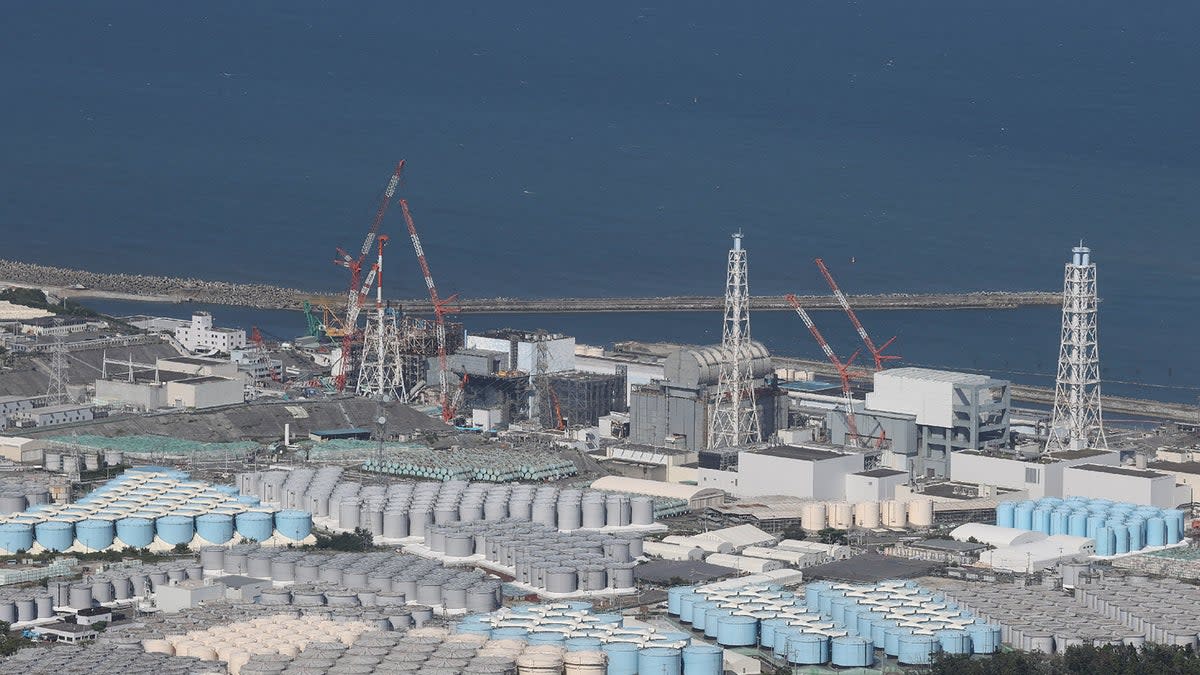Sushi lovers and restaurants adjust to China’s ban after Fukushima water release

With Japan starting the release of Fukushima wastewater into the Pacific Ocean on Thursday, food lovers in the region are expressing concerns over the quality and safety of the fish from the country.
In the wake of the release of radioactive wastewater from the Fukushima nuclear facility – a major step towards decommissioning the facility that suffered a triple meltdown due to a 2011 tsunami – China has banned seafood imports from Japan, with Hong Kong expected to follow suit.
The move by the Chinese authorities was aimed at preventing “the risk of radioactive contamination of food safety caused by Japan’s Fukushima nuclear-contaminated water discharge”, and to protect the health of Chinese consumers, the Chinese customs department said in a statement on Thursday.
The BBC reported that in Hong Kong – where Japanese seafood is very popular – several food lovers showed renewed urgency to consume it in the days leading up to the Fukushima wastewater release.
“This isn’t just a question of whether seafood is safe to eat. The circulation of currents means this will affect the whole world,” claimed one user on Chinese social media site Weibo.
The import ban from Hong Kong, that was slated to come into effect from Thursday, covers 10 Japanese prefectures. These include Tokyo, Fukushima, Chiba, Tochigi, Ibaraki, Gunma, Miyagi, Niigata, Nagano and Saitama.
The ban on seafood imports in China has triggered a sense of unease among seafood aficionados, who now face the dilemma of finding credible seafood sources, several reports said.
Japan’s controversial decision to discharge Fukushima wastewater into the Pacific Ocean has cast a pall over the safety of fish sourced from these waters. While Japanese officials assert that radiation levels are within acceptable limits, scepticism lingers among consumers, especially those with a penchant for seafood.
Restaurants and supermarkets in Hong Kong made sure they label their seafood to assuage the fears of customers buying such products.
South China Morning Post (SCMP) reported that Hong Kong supermarkets and restaurants have responded by prominently displaying signs indicating that seafood from Western nations is sourced from those regions. One supermarket, Wellcome, informed its customers about the origin of its salmon from Norway and shellfish from Canada, making sure customers make their purchases without worrying.
Japan started releasing purified radioactive water from "Fukushima"
🇨🇳🇯🇵China has completely suspended all seafood imports from Japan following Tokyo's decision to begin releasing "dirty water" from the Fukushima-1 nuclear power plant into the ocean. pic.twitter.com/OVRZoGTgJK— Sprinter (@Sprinter99800) August 24, 2023
Wellcome said its salmon came from Norway, shrimp sashimi from Argentina and sea urchin, surf clams and green whelk from Canada, the outlet reported.
“Customers can shop with us with peace of mind,” a sign read.
In an attempt to address growing public concerns stemming from the seafood import ban, local Japanese restaurants have also taken measures to reassure their patrons. Sushi and sashimi establishments in the city have proactively communicated the safety of their offerings.
Japanese restaurant Sushi Express – which boasts a network of 35 outlets throughout the city – for example, released a statement via its social media platforms assuring patrons that none of its restaurants utilise any products originating from the 10 affected prefectures in Japan.
Hong Kong will impose an indefinite ban on seafood imports from 10 Japanese prefectures from Thursday. The Democratic Alliance for the Betterment and Progress of Hong Kong petitioned against Japan’s move outside its Consulate-General on Wednesday. Photo: Kyle Lam/HKFP. pic.twitter.com/SbBNyWQQsz
— Hong Kong Free Press HKFP (@hkfp) August 23, 2023
“The lunch crowd today was just slightly quieter than usual, but we need to wait and see the actual impact of this wastewater incident,” one restaurant owner was quoted as saying by SCMP.
“Although we sell sashimi, the majority of our products, including salmon, do not come from Japan.”
“But diners have that misconception and associate all sashimi dishes with Japan, so we will take a hit, probably for a few months,” said the unidentified restaurant owner.
Hong Kong is Japan’s second-largest market for fisheries exports, with mainland China holding the top spot.
Notably, the city’s import of Japanese seafood products in 2022 amounted to approximately $536m. This sizeable contribution accounted for over 20 per cent of Japan’s overall marine product exports, as indicated by government data.


